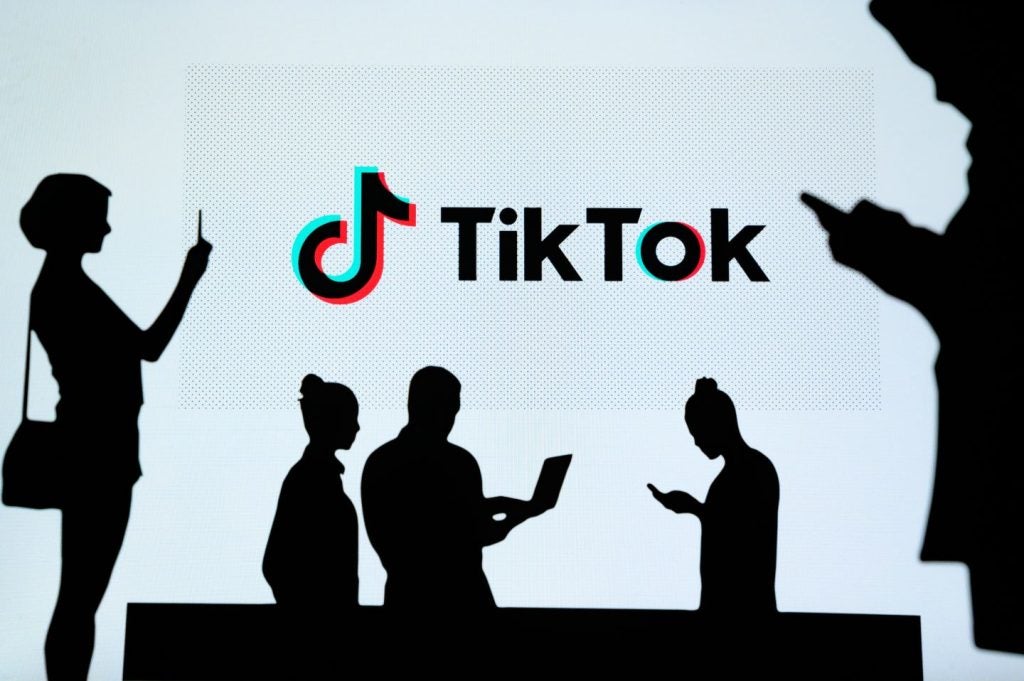
Verdict lists five of the top tweets on big data in Q1 2022 based on data from GlobalData’s Technology Influencer Platform.
The top tweets are based on total engagements (likes and retweets) received on tweets from more than 463 big data experts tracked by GlobalData’s Technology Influencer platform during the first quarter (Q1) of 2022.
The most popular tweets on big data in Q1 2022: Top five
1. Antonio Grasso’s tweet on consumers’ concerns over data collection
Antonio Grasso, CEO of Digital Business Innovation Srl, a consulting company, tweeted on how consumers have become wary and hesitant about sharing their personal information with organisations. Grasso shared an infographic detailing how consumers are becoming wary about businesses selling their personal data to third parties, or sharing their personal details with third parties without consent. Consequently, consumers have provided an increasing account of getting bombarded with spam, raising concerns over their personal information being misappropriated.
The infographic listed some of the main concerns of British consumers about data collection, some key statistics about the data industry, and how to regain trust with consumers. Some of the key concerns of consumers about data collection included selling personal data to third parties and without consent, data hacking, data leaks and breaches, misuse of data, spam, businesses using personal details for their own interests, marketing and advertising issues, unreliability, and others. The infographic further highlighted that about 45% of the organisations in the UK collaborated with a third party to share first-party data. In addition, 47% of UK businesses experienced a cyber-attack at least once every month throughout 2020.
The analysis also found that about 36% of the marketers stated that they used customer data most of the time in their decision-making process. Meanwhile, 122.3 billion spam messages were emailed daily worldwide to customers, implying 85% of the world’s daily email traffic is a spam. It was also found that 80% of the technology company Alphabet’s revenues came from Google ads, which amounted to $147bn in revenues from ads in 2020.
Username: Antonio Grasso
Twitter handle: @antgrasso
Likes: 153
Retweets: 99
2. Ronald Van Loon’s tweet on data science fighting climate change
Ronald Van Loon, CEO of the Intelligent World, an influencer network that connects businesses and experts to audiences, shared an article on the role of data science in tackling climate change. In March 2021, the US Department of Energy announced that it would be providing $34.5m to state-of-the-art research tools focused on climate and clean energy efforts. As a result, the funding intended to support data science and computation-driven approaches, such as artificial intelligence (AI) and machine learning (ML) to improve energy efficiency, advance clean energy technology, and predict anomalies in weather and climate conditions, the article detailed.
Data science is particularly useful for addressing the climate change crisis, as the vast amounts of data generated can be applied to studying climate change and can be employed to further developments in the field. For example, the cloud can run ML algorithms to identify different patterns and derive crucial insights from the climate data, such as polar ice levels or sea temperatures, the article noted.
Additionally, climate issues are data-intensive and comprise complex data sets specifically suited to big data. Furthermore, high-performance computing (HPC) reduces the amount of environmental data, such as satellite images, enabling analytics to manage them better, the article highlighted. Some other use cases of data science for climate change, include ML algorithms reducing traffic congestion that worsens air quality, and AI-driven intelligence, cloud, and the internet of things (IoT) introducing more energy efficiency into the heating and cooling of buildings.
Username: Ronald Van Loon
Twitter handle: @Ronald_vanLoon
Likes: 111
Retweets: 119
3. Linda Grasso’s tweet on industrial companies leveraging data to improve operations
Linda Grasso, CEO of technology, information and media company DeltalogiX, shared an article on how industrial companies are using AI to boost their plants’ operations. AI in turn leverages big data, which offers insights that are derived when ML is applied to complex and variable data sets, the article detailed. Therefore, experts believe that in order to succeed, companies will have to transfer their data with the help of domain specialists. According to research, more than 75% of the industrial companies have been able to pilot some form of AI; however, about 15% are yet to understand its potential. Experts believe the analytics teams in the latter usually take an outside-in approach to AI and ML which may work but yields unrealistic results, the article noted.
Therefore, in order to succeed, companies should deploy an automation framework with accurate historian data. Then the big data will have to adapt to AI, often with fewer variables but with intelligent engineering that is termed as smart data. This expert-driven approach will lead to improved predictive accuracy, thereby enabling root-cause analysis, the article further highlighted. There are five steps to creating smart data, which includes defining the process, enriching the data, minimising the dimensionality, applying ML, and implementing and confirming the models.
Username: Linda Grasso
Twitter handle: @LindaGrass0
Likes: 99
Retweets: 55
4. David Holm’s tweet on more organisations engaging in data collaboration
David Holm, a technology strategist and start-up investor, shared an infographic on how more organisations are engaging in data collaboration to fight common issues without compromising privacy. Some six privacy-preserving approaches for data sharing includes fully homomorphic encryption, where the data is encrypted before it is shared. Secondly, differential privacy, where noise is added to the dataset so that it is difficult to reverse-engineer the original inputs. Thirdly, functional encryption, which allows some users to view some parts of the encrypted text.
Fourthly, federated analysis, where the parties share insights from their analysis but not the data. Fifthly, zero-knowledge proofs, where users are able to prove their awareness of the value but not the value, and sixth is the secure multiparty computation technique, where the data analysis is spread across all parties but no party can view the complete set of inputs.
Username: David Holm
Twitter handle: @cloudpreacher
Likes: 24
Retweets: 65
5. Andreas Staub’s tweet on the description of big data
Andreas Staub, head of corporate development and digital transformation at the banking company Raiffeisen group, shared an article on the definition of big data and how it has garnered so much attention over the past few years. While the exact origin of big data is vague, some researchers claim that it was beginning to emerge due to robust computing technology becoming more available and at more affordable prices in the 1990s. Big data has been defined by researchers as that consisting of extensive datasets that needs manipulation, storage, and analysis.
However, the exact size when data becomes big has not yet been established, although there are some general guidelines or the three V’s that describe big in big data, the article noted. They are volume, which includes the massive amounts of data, velocity, which is built in real time, and variety, which is the kind or nature of the data, that is, structured, semi-structured, or unstructured.
Big data insights are beneficial to both businesses and individuals, including its application in healthcare services such as the Fitbit watch that tracks all health data in real time, the article detailed. Big data is also employed in business and finance to increase efficiencies with pricing, financial fraud detection, customer experience optimisation, and in making more actuarial calculations for insurance. In contrast, however, big data also comes with inherent risks and challenges, such as data misuse which could involve collection errors, discrimination, improper profiling, data breaches, cyberattacks, or even political and social manipulation, the article highlighted.
Username: Andreas Staub
Twitter handle: @andi_staub
Likes: 41 Retweets: 46







Related Company Profiles
Alphabet Inc
Fitbit Inc